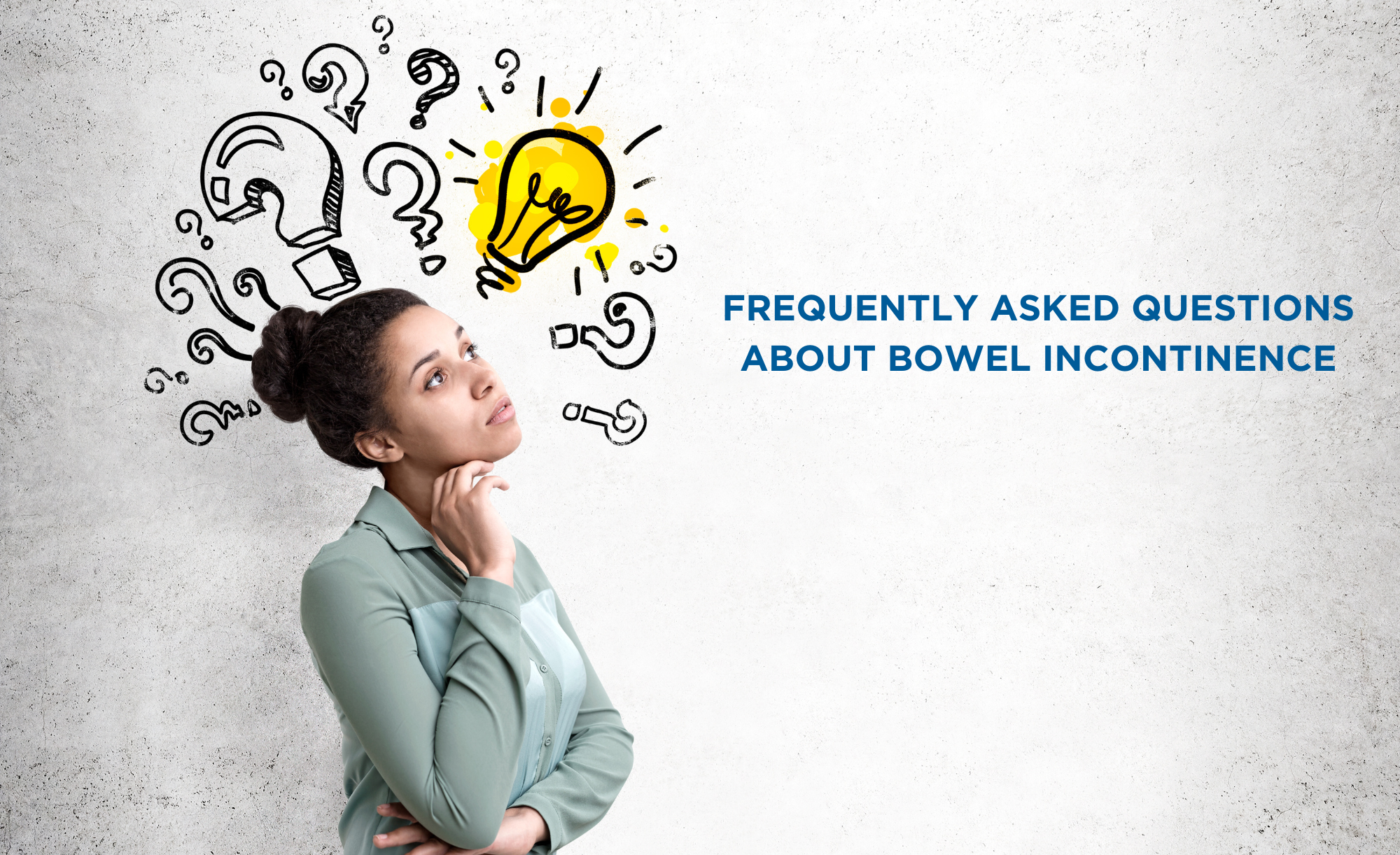
Answers to some of the most commonly asked questions related to bowel incontinence.
What is bowel incontinence?
Bowel incontinence is the involuntary leakage of liquid or solid stool. It is a long-term (chronic) and unpredictable symptom, which can be caused by many conditions. It is also referred to as fecal incontinence, accidental bowel leakage, anal incontinence, soiling, or lack of bowel control.
How common is incontinence?
People are often surprised to learn how prevalent bowel incontinence is. At least 6% of the general population lives with bowel incontinence. It occurs in 6% of women younger than 40 and in 15% of older women. Between 6% and 10% of men experience incontinence, with a slight increase with age.1
Individuals with incontinence are often reluctant to report their symptoms. The condition is believed to be widely under-diagnosed and hidden in our society.
Who is likely to develop incontinence?
Many otherwise healthy, active men, women, and children live with incontinence. Although it is often associated with aging, it is not a normal part of the aging process.
Why does incontinence occur?
Continence depends on properly functioning muscles and nerves in and around the rectum and anal canal. Any condition that interferes with these complex mechanisms may result in bowel incontinence. Examples that can contribute to the development of incontinence include childbirth, constipation, diarrhea, irritable bowel syndrome (IBS), inflammatory bowel disease (IBD), pelvic or anal surgery, neurological diseases, traumatic injuries, and radiation treatments for certain cancers.
How is incontinence managed?
Management of bowel incontinence often involves dietary changes, medication, or bowel management/retraining programs. Individuals should work with a knowledgeable healthcare professional to develop an individualized management plan.
Are there treatments that can restore continence?
Depending on the cause and severity of symptoms, one of the following treatments may restore bowel continence: biofeedback therapy, a surgical procedure, or one of the newly developed implants, injections, or devices.
Can bowel incontinence be cured?
Continence cannot always be restored. Even after initial success with biofeedback or surgery, many patients do not retain the post-treatment degree of continence long-term.2 There is a great need for research aimed at finding innovative treatments to improve lives of affected individuals.
What is the personal burden associated with incontinence?
The impact of this hidden condition extends far beyond the physical symptoms and can have devastating effects on an individuals quality of life. Sufferers often withdraw from their social and professional activities to hide the problem from everyone in their lives.
It is estimated that millions suffer in silence.
Education and awareness can help break down the barriers that block sufferers from seeking care.
What can I do if I suffer with incontinence?
Here are some key messages:1
- Know that you are not alone – incontinence is common across all ages
- You do not have to just “live with it’
- Some medical conditions that cause incontinence can be treated
- Incontinence does not have to be a part of aging
- There are various management and treatment therapies to help improve continence
- You should tell your doctor
Source
IFFGD. Reporter’s Guide to Bowel Incontinence. 2008.
References
Landefeld CS, et al. National Institutes of Health State-of-the-Science Statement: Prevention of Fecal and Urinary Incontinence in Adults. Ann Intern Med. Epub 2008 Feb 11
Madoff RD, Parker SC, Varma MG, Lowry AC. Faecal incontinence in adults. Lancet. 2004 Aug 14-20;364(9434):621-32. Review.









